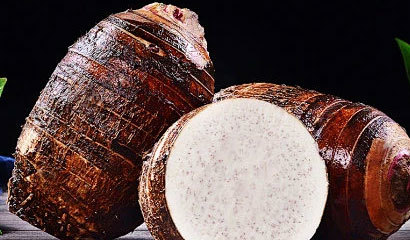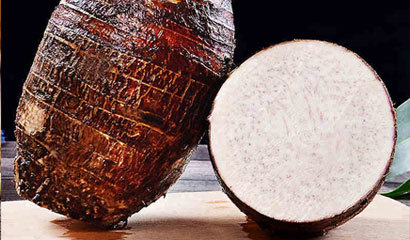
BLOG
How can a Lishui taro processing factory increase the added value of its products?
How can Lipu taro processing plants increase the added value of their products?
If you've ever tasted Lipu taro, you're sure to be captivated by its unique, smooth texture and natural sweetness. However, as a Lipu taro processing plant, how can you stand out in a fiercely competitive market and increase the added value of your products? Today, let's discuss some strategies and ideas in this regard.
1. Improve product quality and increase consumer trust
First, Lipu taro processing plants should focus on the selection of raw materials. High-quality Lipu taro is the foundation; only by selecting high-quality raw materials can high-value-added products be produced. Imagine a consumer seeing a product labeled “High-Quality Lipu Taro” in a supermarket compared to a regular product without any description. Which one is more eye-catching? Obviously, the former is more attractive.
In addition, improving processing technology is also crucial. Using modern processing equipment and advanced production technologies not only improves production efficiency but also ensures the preservation of the product's taste and nutritional components. For example, freeze-drying technology can preserve the natural aroma and nutrients of Lipu taro, thereby enhancing the product's market competitiveness.
2. Diversify product lines to meet different needs
A single product cannot meet the needs of various consumers in the market. Lipu taro processing plants can consider diversifying their product lines and launching products in different forms. For example, in addition to traditional Lipu taro cubes, they can consider producing Lipu taro chips, Lipu taro powder, and Lipu taro cakes. This is like a river; only with a continuous flow of tributaries can it become wider and richer.
Diversified products can not only attract different customer groups but also help enterprises find new growth points in market fluctuations. Imagine a family with both elderly people and children; the elderly may prefer Lipu taro cubes, while children may prefer Lipu taro chips. If the Lipu taro processing plant can provide both products, wouldn't it attract more families to buy them?
3. Innovative marketing strategies to enhance brand awareness
In this age of information explosion, relying solely on the product itself is far from enough. Lipu taro processing plants also need effective marketing strategies to enhance brand awareness. Using emerging channels such as social media and short video platforms for promotion can quickly expand the brand's influence. Have you ever considered using vivid short videos to showcase the production process of Lipu taro or sharing some delicious Lipu taro recipes? This not only attracts potential customers but also enhances the brand's affinity.
At the same time, participating in offline activities such as food exhibitions and local characteristic markets can allow more people to directly experience the charm of the products. Imagine the emotion and satisfaction a consumer feels when they taste your carefully crafted Lipu taro products at a food exhibition. Why not do it?
4. Build a sustainable Brand image
Nowadays, consumers are increasingly concerned about a brand's social responsibility and sustainable development. Lipu taro processing plants can establish a positive Brand image by adopting environmentally friendly production methods and reasonable resource management. This not only enhances the added value of products but also wins the trust of consumers. For example, using degradable packaging materials not only reduces environmental pollution but also attracts consumers with a strong environmental consciousness.
5. Strengthen cooperation with farmers to enhance the stability of the raw material supply chain
The quality of Lipu taro is inseparable from the source of the crops. Lipu taro processing plants can consider establishing close partnerships with local farmers. By providing technical guidance and reasonable purchase prices, they can not only ensure the quality of raw materials but also help farmers improve production efficiency, achieving a win-win situation.
Imagine the pride and sense of accomplishment a farmer feels when they see their Lipu taro processed into delicious products. This not only increases farmers' income but also enhances the stability and quality of the entire supply chain.
Conclusion
In summary, Lipu taro processing plants have many directions to explore in improving product added value. Whether it's improving product quality, enriching product lines, innovating marketing strategies, or focusing on sustainable development, these are all crucial factors that cannot be ignored. Only when these strategies complement each other can they truly bring greater market competitiveness to Lipu taro processing plants.
So, dear readers, are you eager to try these strategies? Let's look forward to Lipu taro processing plants creating more wonderful things in the future!





